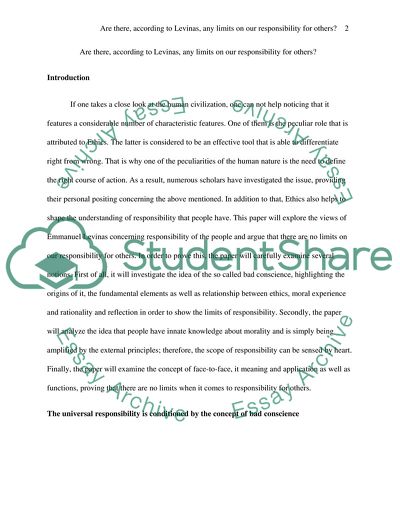Cite this document
(Limits on Our Responsibility for Others Levinas Essay Example | Topics and Well Written Essays - 2750 words, n.d.)
Limits on Our Responsibility for Others Levinas Essay Example | Topics and Well Written Essays - 2750 words. https://studentshare.org/philosophy/1874602-are-there-according-to-levinas-any-limits-on-our-responsibility-for-others
Limits on Our Responsibility for Others Levinas Essay Example | Topics and Well Written Essays - 2750 words. https://studentshare.org/philosophy/1874602-are-there-according-to-levinas-any-limits-on-our-responsibility-for-others
(Limits on Our Responsibility for Others Levinas Essay Example | Topics and Well Written Essays - 2750 Words)
Limits on Our Responsibility for Others Levinas Essay Example | Topics and Well Written Essays - 2750 Words. https://studentshare.org/philosophy/1874602-are-there-according-to-levinas-any-limits-on-our-responsibility-for-others.
Limits on Our Responsibility for Others Levinas Essay Example | Topics and Well Written Essays - 2750 Words. https://studentshare.org/philosophy/1874602-are-there-according-to-levinas-any-limits-on-our-responsibility-for-others.
“Limits on Our Responsibility for Others Levinas Essay Example | Topics and Well Written Essays - 2750 Words”. https://studentshare.org/philosophy/1874602-are-there-according-to-levinas-any-limits-on-our-responsibility-for-others.


